Edited by Richard L. Velkley
Leo Strauss on Nietzsches Thus Spoke Zarathustra
Edited and with an Introduction by Richard L. Velkley
The University of Chicago Press
Chicago and London
The University of Chicago Press, Chicago 60637
The University of Chicago Press, Ltd., London
2017 by The University of Chicago
All rights reserved. No part of this book may be used or reproduced in any manner whatsoever without written permission, except in the case of brief quotations in critical articles and reviews. For more information, contact the University of Chicago Press, 1427 E. 60th St., Chicago, IL 60637.
Published 2017
Printed in the United States of America
26 25 24 23 22 21 20 19 18 17 1 2 3 4 5
ISBN-13: 978-0-226-48663-5 (cloth)
ISBN-13: 978-0-226-48677-2 (e-book)
DOI: 10.7208/chicago/9780226486772.001.0001
Scattered excerpts from THE PORTABLE NIETZSCHE by Friedrich Nietzsche, edited by Walter Kaufmann, translated by Walter Kaufmann, translation copyright 1954, 1968, renewed 1982 by Penguin Random House LLC, used by permission of Viking Books, an imprint of Penguin Publishing Group, a division of Penguin Random House LLC.
Library of Congress Cataloging-in-Publication Data
Names: Strauss, Leo, author. | Velkley, Richard L., editor.
Title: Leo Strauss on Nietzsches Thus spoke Zarathustra / edited and with an introduction by Richard L. Velkley.
Description: Chicago : The University of Chicago Press, 2017. | Includes index.
Identifiers: LCCN 2017003600 | ISBN 9780226486635 (cloth : alk. paper) | ISBN 9780226486772 (e-book)
Subjects: LCSH: Nietzsche, Friedrich Wilhelm, 18441900. Also sprach Zarathustra. | Philosophy, German.
Classification: LCC B3313.A44 S77 2017 | DDC 193dc23 LC record available at https://lccn.loc.gov/2017003600
 This paper meets the requirements of ANSI/NISO Z39.48-1992 (Permanence of Paper).
This paper meets the requirements of ANSI/NISO Z39.48-1992 (Permanence of Paper).
Contents
Leo Strauss is well known as a thinker and writer, but he also had tremendous impact as a teacher. In the transcripts of his courses one can see Strauss comment on texts, including many he wrote little or nothing about, and respond generously to student questions and objections. The transcripts, amounting to more than twice the volume of Strausss published work, add immensely to the material available to scholars and students of Strausss work.
In the early 1950s mimeographed typescripts of student notes of Strausss courses were distributed among his students. In winter 1954, the first recording, of his course on natural right, was transcribed and distributed to students. Strausss colleague Herbert J. Storing obtained a grant from the Relm Foundation to support the taping and transcription, which resumed on a regular basis in the winter of 1956 with Strausss course Historicism and Modern Relativism. Of the 39 courses Strauss taught at the University of Chicago from 1958 until his departure in 1968, 34 were recorded and transcribed. After he retired from Chicago, recording of his courses continued at Claremont Mens College in the spring of 1968 and the fall and spring of 1969 (although the tapes for his last two courses there have not been located), and at St. Johns College for the four years until his death in October 1973.
The surviving original audio recordings vary widely in quality and completeness, and after they had been transcribed, the audiotapes were sometimes reused, leaving the audio record very incomplete. Over time the audiotape deteriorated. Beginning in the late 1990s, Stephen Gregory, then administrator of the Universitys John M. Olin Center for Inquiry into the Theory and Practice of Democracy funded by the John M. Olin Foundation, initiated digital remastering of the surviving tapes by Craig Harding of September Media to ensure their preservation, improve their audibility, and make possible their eventual publication. This project received financial support from the Olin Center and from the Division of Preservation and Access of the National Endowment for the Humanities. The remastered audiofiles are available at the Strauss Center website: https://leostrausscenter.uchicago.edu/courses.
Strauss permitted the taping and transcribing to go forward but did not check the transcripts or otherwise participate in the project. Accordingly, Strausss close associate and colleague Joseph Cropsey originally put the copyright in his own name, though he assigned copyright to the Estate of Leo Strauss in 2008. Beginning in 1958 a headnote was placed at the beginning of each transcript: This transcription is a written record of essentially oral material, much of which developed spontaneously in the classroom and none of which was prepared with publication in mind. The transcription is made available to a limited number of interested persons, with the understanding that no use will be made of it that is inconsistent with the private and partly informal origin of the material. Recipients are emphatically requested not to seek to increase the circulation of the transcription. This transcription has not been checked, seen, or passed on by the lecturer. In 2008, Strausss heir, his daughter Jenny Strauss, asked Nathan Tarcov to succeed Joseph Cropsey as Strausss literary executor. They agreed that because of the widespread circulation of the old, often inaccurate and incomplete transcripts and the continuing interest in Strausss thought and teaching, it would be a service to interested scholars and students to proceed with publication of the remastered audiofiles and transcripts. They were encouraged by the fact that Strauss himself signed a contract with Bantam Books to publish four of the transcripts although in the end none were published.
The Universitys Leo Strauss Center, established in 2008, launched a project, presided over by its director, Nathan Tarcov, and managed by Stephen Gregory, to correct the old transcripts on the basis of the remastered audiofiles as they became available, transcribe those audiofiles not previously transcribed, and annotate and edit for readability all the transcripts including those for which no audiofiles survived. This project was supported by grants from the Winiarski Family Foundation, Mr. Richard S. Shiffrin and Mrs. Barbara Z. Schiffrin, Earhart Foundation, and the Hertog Foundation, and contributions from numerous other donors. The Strauss Center was ably assisted in its fundraising efforts by Nina Botting-Herbst and Patrick McCusker of the Office of the Dean of the Division of the Social Sciences at the University.
Senior scholars familiar with both Strausss work and the texts he taught were commissioned as editors, with preliminary work done in most cases by student editorial assistants. The goal in editing the transcripts has been to preserve Strausss original words as much as possible while making the transcripts easier to read. Strausss impact (and indeed his charm) as a teacher is revealed in the sometimes informal character of his remarks. Readers should make allowance for the oral character of the transcripts. There are careless phrases, slips of the tongue, repetitions, and possible mistranscriptions. However enlightening the transcripts are, they cannot be regarded as the equivalent of works that Strauss himself wrote for publication.


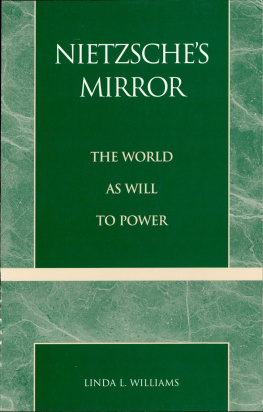
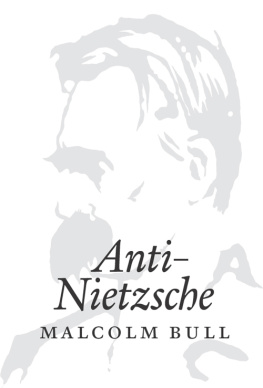
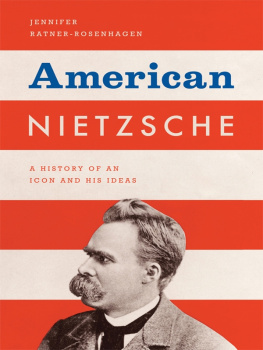
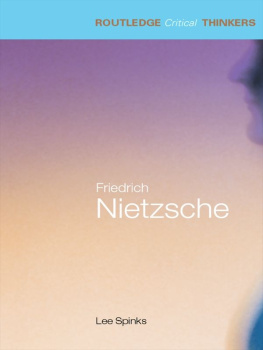
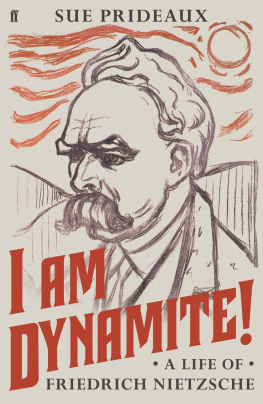

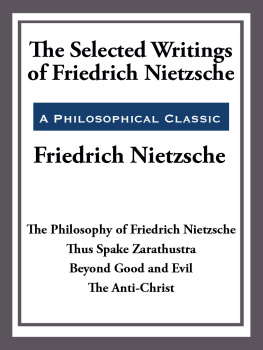
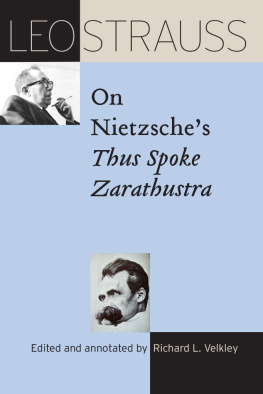
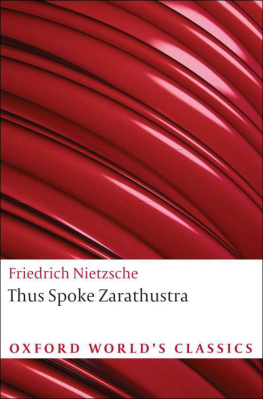
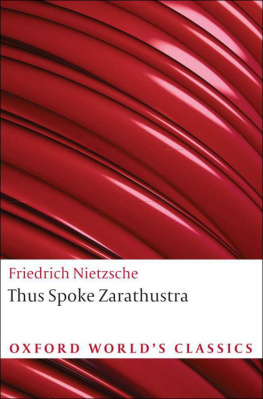
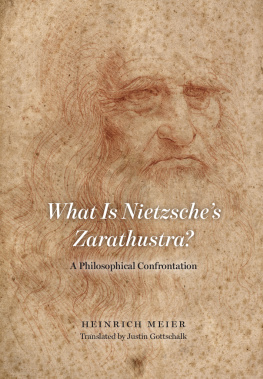
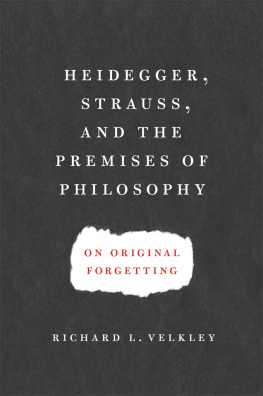

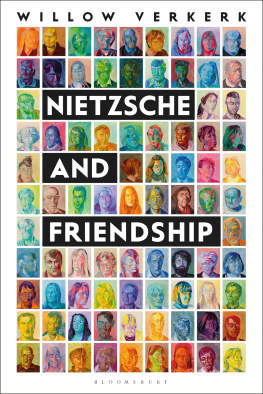
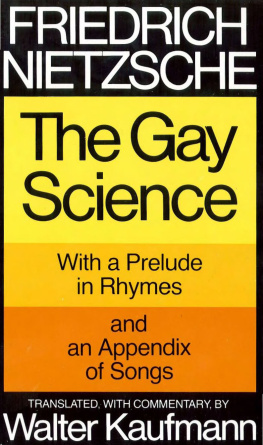

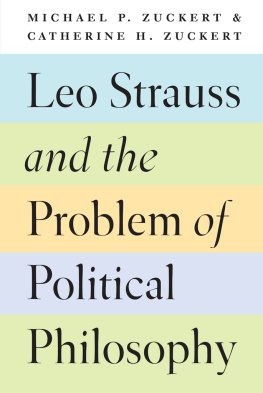
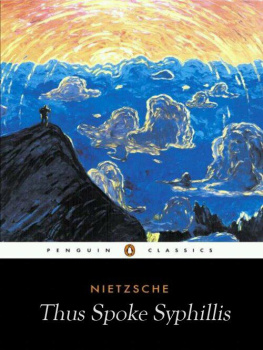
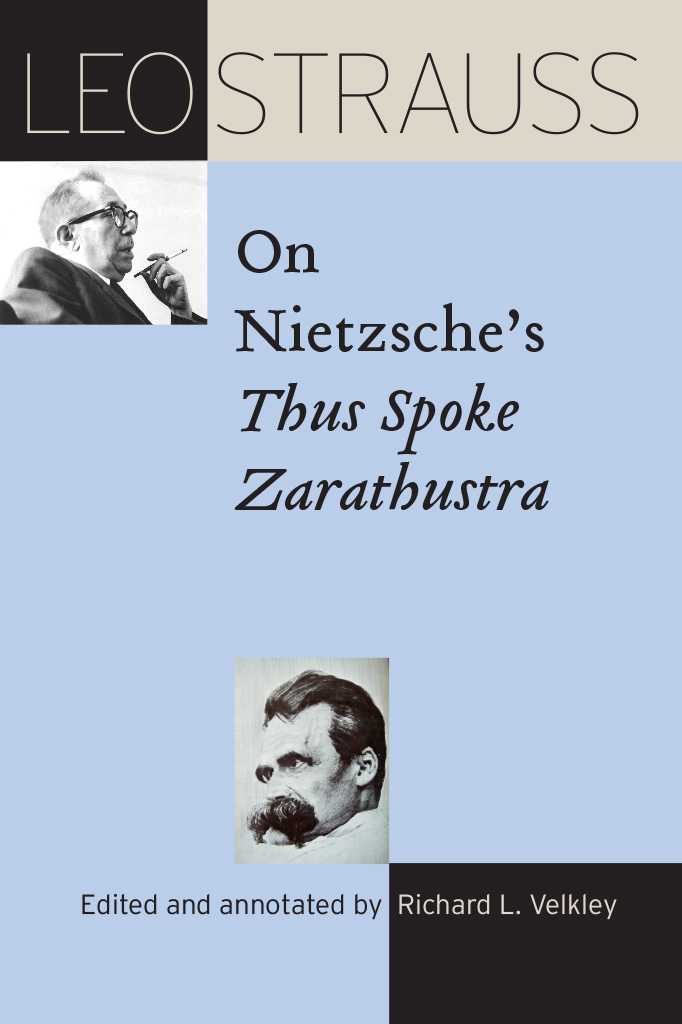

 This paper meets the requirements of ANSI/NISO Z39.48-1992 (Permanence of Paper).
This paper meets the requirements of ANSI/NISO Z39.48-1992 (Permanence of Paper).